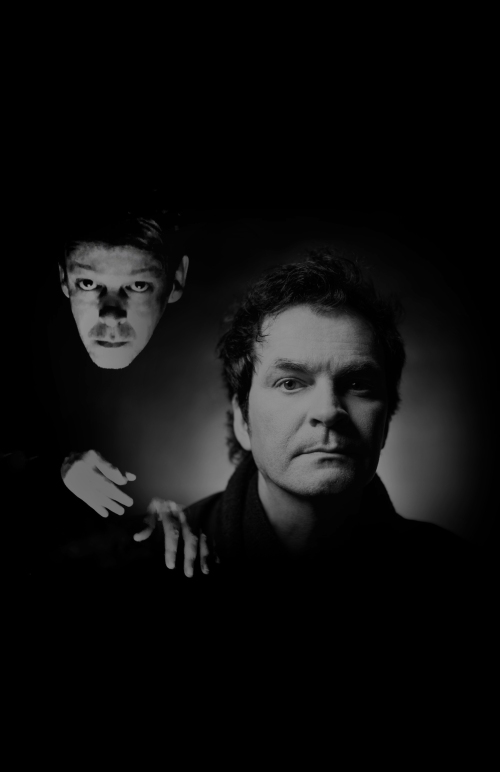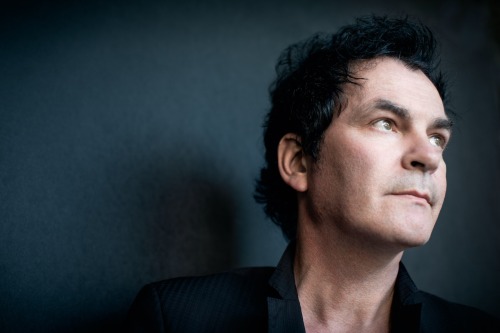My Bus – Our Life In The Desert – on vinyl LP (HUM30), CD (HUM31) and streaming/download (but we all know that’s not the best way for various reasons, right?)

Onomatopoeia Records was named partly in homage to the first album by Butterfly Child. It’s important you understand this from the outset. It will help you understand how deeply important Our Life In The Desert is to us. We could not be prouder. In many ways our involvement with this album completes a circle. More information is below but if you want to get straight to ordering then you need to know this:
You can order direct from us send a PayPal payment to ononist@onophonic.com using the pricing below. You can also buy from the finest and most discerning record shops, iTunes, and all the other places. It’s always best to buy direct from record labels and bands when you are able to.
- LP £19.00 including. postage & packaging in the UK. £23.00 inc. p & p in Europe, £28.00 in US and everywhere else around the world.
- CD £12.50 including postage & packaging in the UK. £16.00 inc. p & p in Europe, £19.00 in US and everywhere else around the world.
- Both LP and CD £30:00 including postage & packaging in the UK. £37.50 inc. p & p in Europe, £38.00 in rest of the world.
For requests for signed copies, specialist international shipping prices, and bulk orders etc please email onoman@onophonic.com and we will get back with a quote. Wholesale distribution to shops is, as always, by our chums at Cargo Records.
You can be beguiled, mystified, elevated and discombobulated in advance here:
Track listing:
01 Esperanto
02 Weekend Hearts
03 Ballerina
04 Elvis And Me
05 Moon Tempo
06 Tomorrow Will Be Ours
07 She Was Never There
08 Angeles
09 Breakfast In Bed
10 The Sun Will Come
11 Goose Pimples Forever
12 And Time
My Bus is Joe Cassidy and Gary McKendry. As Butterfly Child and Papa Sprain respectively they were restless parallel adventurers in the early days of UK dream-pop. They released EPs for AR Kane’s label H.ark! and then for Rough Trade. Butterfly Child blossomed, astounded and ripped your heart out over 3 albums (Onomatopoeia, The Honeymoon Suite, Soft Explosives) before going on hiatus until Futures in 2015. Papa Sprain imploded after two EPs (Flying To Vegas and May) and the Tech Yes 7″. Gary suffered a mental breakdown. Their first album remains a legendary lost album.
They blazed radical trails for music, burned bright and then faded away. Now they have combined to form My Bus.

Our Life In The Desert is of the richest and most emotional dream-pop entities of any era. It combines Gary’s love of dissonance and Joe’s love of melody and composition. It is a deeply nostalgic record born out of a love and a friendship that have survived thousands of miles and many decades.
While there is yet a longer, more intricate story yet to be told about My Bus, and the truth is drifting and ever-changing, if it exists at all, there are some things that we think we know today:
“Joe Cassidy’s first album in 18 years under the name of Butterfly Child, released in 2015, was named Futures. “A lot of songs are about past relationships,” he said at the time. “You rebuild and move forward, toward the future.”
Little did Joe know that, one year later, he would re-establish a crucial past relationship after more than 20 years, namely his former musical partner Gary McKendry, which would flower into their first official collaboration, Our Life In The Desert, over 30 years since the duo – calling themselves My Bus – made bedroom cassettes in their home city of Belfast.
The album also heralds McKendry’s return from a self-imposed wilderness that began in 1993, in the days when he called himself Papa Sprain. Anyone who knows Butterfly Child and Papa Sprain, restless parallel adventurers in the early days of UK dream-pop, will also know what a big deal this all is, especially as Our Life In The Desert is of the richest and most emotional dream-pop entities of any era.
The emotion comes from a friendship lost, renewed and remembered, or as Joe puts it, “a love story. One between two friends, the music they share, ex-girlfriends, pals who are no longer with us and the ghosts of old haunts long gone. It is a longing for a Belfast and a time that never really existed.”
The album’s backdrop is grammar school in 1980s Belfast, through to shared experiences in London when Butterfly Child and Papa Sprain were both signed to fledgling indie H.ark! and then the venerated Rough Trade. When the latter collapsed, Cassidy moved to America and made numerous albums but McKendry returned to Belfast and went to ground. Not that Joe’s life has always been on the up, as the title Our Life In The Desert testifies.

Joe: “When we started the album, Gary sent me pieces of music, including a piece called ‘Our Life In The Desert’, which struck me immediately as the album title. The first Papa Sprain record was the Flying To Vegas EP, with a desert landscape for the artwork. In the early nineties, Gary moved into the desert, mentally. And when I moved from Chicago to LA, I just got lost there, it’s one of the most vacuous cities in the world. Our Life In The Desert seemed so appropriate as the album title.”
As Gary recalls, he and Joe became firm friends at 15, bonding over The Velvet Underground and Bowie. They initially made music separately, but eventually started making four-track demos in 1986 fuelled by endless cups of tea and cigarettes, “a splendid way to block out the Troubles that were raging all around us,” says Joe.

The tapes gathered dust when Gary moved to London in 1989, to study English and History – a pursuit set aside after Joe saw an ad in Melody Maker – “looking for bands to produce” – placed by H.ark!, the label run by Alex Ayuli and Rudy Tambala, AKA dream-pop experimentalists A.R. Kane. By 1992, Papa Sprain and Butterfly Child had released two EPs apiece on H.ark! before Rough Trade stepped in. The label released Butterfly Child’s debut album Onomatopoeia in early 1993, but the money had run out by the time Papa Sprain was ready to record an album (there was just one single, ‘Tech Yes’, for the Rough Trade Singles Club). In any case, “I just lost it,” says Gary. “I had a breakdown and I couldn’t function anymore.”
It was only in the mid-noughties, when blogs eulogised the brilliance – and lamented the absence – of Butterfly Child and Papa Sprain, that Gary and Joe reconnected. And when Joe flew to Belfast to visit family in 2016, Gary suggested they meet. “We talked for two hours,” says Joe. “And then Gary said, let’s make some music like we used to. I said, sure…”
The initial result was a collection of improvised sketches, “messy and silly, over crazy little beats, sound design stuff,” Joe recalls. “But each day I was in Belfast, I would be inspired by the textures and would write and record songs around them. And when I returned to America, I thought, I can do something with this mixing wise. Gary and I used to make up songs on the spot, so if we kept the same schedule, writing and recording tracks in 24 hours, it would be a lovely way to close a chapter.”
As it turns out, Gary had started recording again in 1997: “white noise,” he calls it, “my way to get through a creative block.” Going by his YouTube posts since the mid-noughties (search Gary Martin McKendry: there are hundreds to choose from), he progressed to a form of digitised ambient/post-rock impressionism (with matching graphics). “For Gary, songwriting, form and melody are passé!” says Joe. Gary’s response: “I don’t like things staying in time. I’d rather sounds play off each other.”
Combining Gary’s love of dissonance and Joe’s love of melody/composition, Our Life In The Desert became, “the perfect example of an exquisite corpse of two clashing worlds. A lot like Ireland in the bad days,” says Joe. The lyrics range from direct to oblique (We’re both huge James Joyce fans,” says Joe), as the music spans oceanic drift (‘Moon Tempo’), full-on drama (Elvis & Me’), simmering pop tones (‘Tomorrow Will Be Ours’) and the stirring, multi-faceted ‘Goose Pimples Forever’, rescued by the wonders of technology from an ancient disintegrating My Bus cassette, with Joe adding a new vocal to Gary’s original. ‘Breakfast in Bed’ is also an old My Bus track, but newly recorded as the original was, “too horribly hissy”.
There is one new Gary vocal, on the exquisite, haunting “Angeles”, his spoken word matched to one of his more restful ambient pieces. “It’s an idea of confusion and uncertainty,” says Gary (“Our minds contemplating the paltry limits of the conditional to my mind thoughts are only for preparing an entrance and an exit”). “It’s where I still am.”
If the album’s predominant voice and lyricist is Joe, Gary is woven into every fabric, such as the Belfast landmarks in ‘She Was Never There’: “This ship has sailed from the Holy Lands to the Antrim Road and up Cavehill”: “we’d walk along and talk about music and how we’d make better records,” says Joe. Note that Our Life In The Desert and Belfast boy Van Morrison’s Astral Weeks share a track title in ‘Ballerina’. “Lyrically it just came out when I started singing to the music,” says Joe. “About the euphoria of a first kiss or hearing an amazing song for the first time.”
Our Life In The Desert is released on Onomatopoeia Records, run by Nick Bourne, a huge Butterfly Child and Papa Sprain fan who had previously connected with Joe on Facebook, which “completes another circle,” says Joe. Likewise, Gary and Joe’s decision to donate proceeds from the album to a mental health charity. Proof, then, that even in a desert, life can flourish.”
